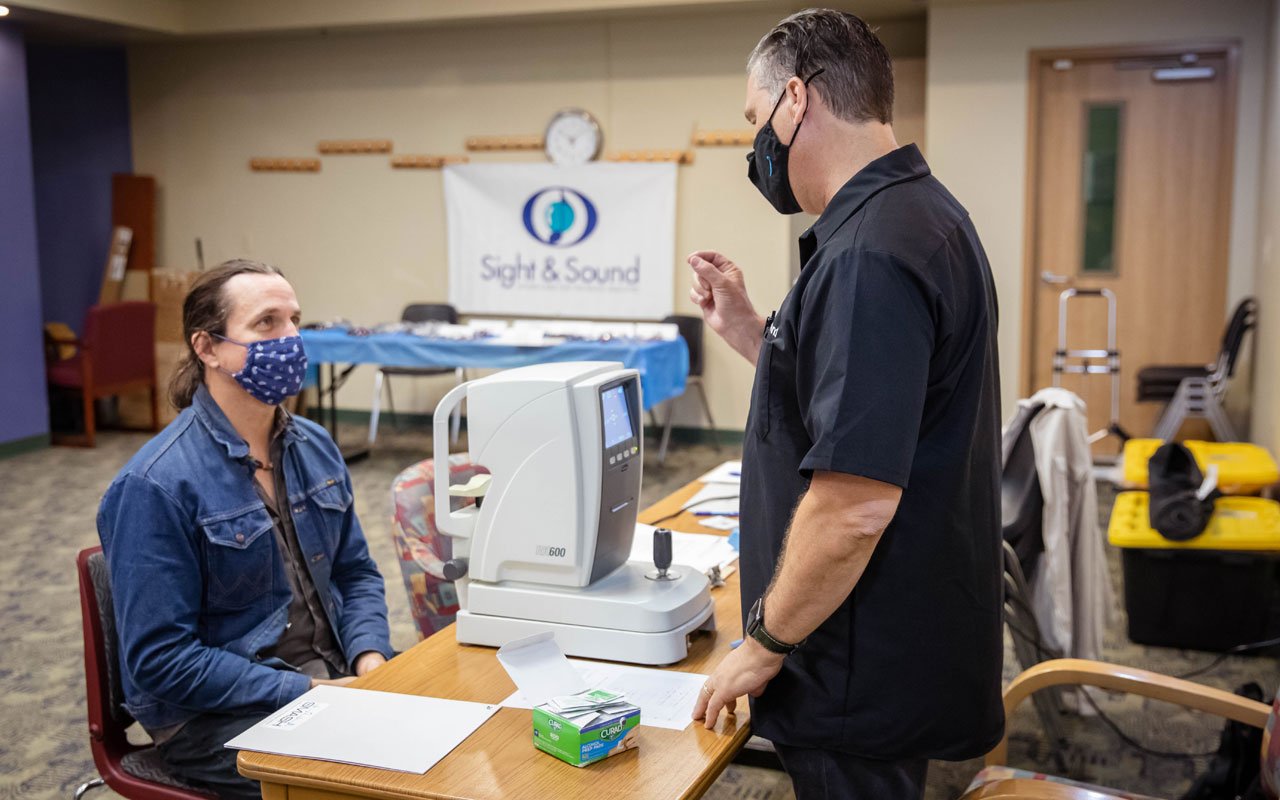Photo courtesy of SMASH
Community Corner is a series that invites the public to contribute their thoughts, reflections, observations, and more about the world around us, particularly as it relates to jazz and music overall. Earshot Jazz is dedicated to amplifying the voices and stories of artists and community members alike. The thoughts and opinions expressed in this series are the author’s own and do not necessarily reflect those of Earshot Jazz. Please email submissions to editor@earshot.org.
BY DENISE BURNSIDE
From Susannah McCorkle to Ann Richards to Albert Ayler, the list of great jazz musicians that no longer share their musical talents with the world due to struggles with mental health is long. The list of musicians who are still struggling is even longer. In 2019, Swedish digital platform Record Union published the results of a survey that found 73% of independent musicians struggle with mental illness. It’s clear musicians are not all right.
Making a career out of music is becoming exponentially more difficult, so it makes sense musicians suffer from mental health struggles at a dramatically higher rate than the general public. A 2018 study from the Music Industry Research Association (MIRA), found that 50% of musicians reported battling symptoms of depression, compared with less than 25% of the general adult population. Musicians face extreme financial instability in the gig economy, are directly impacted by gentrification and the rising cost of living, are surrounded by drugs and alcohol at work, and often lack access to affordable mental health treatment.
More and more, we are seeing musicians at every level canceling tours; some are even leaving the industry entirely because of the immense pressures of being a musician. As musicians hustle to make ends meet, mental healthcare takes a backseat to expenses like rent and food. In the aforementioned Record Union survey, less than 40% of musicians said they sought professional treatment; more than 50% claimed they turned to self-medication like alcohol and drug use. Focusing on mental health feels like a luxury, but it shouldn’t be.
If you’re a musician struggling with your mental health, I encourage you to seek out support. There are great organizations locally and nationwide that want to help, like my organization, Seattle Musicians Access to Sustainable Healthcare (SMASH), which provides free mental healthcare to Puget Sound musicians. Other organizations offering mental health support for musicians or music industry workers include Backline, Sweet Relief, MusicCares, SIMS Foundation, and Music Support. If you’re a music fan, reach out to us or one of these organizations to see how you can help.
It’s hard to imagine a world without music. Imagine being in a restaurant or driving in a car, completely silent. That sounds pretty unnerving, right? Music surrounds us. It lifts our spirits when we are down. It inspires us. It brings us together. Music enriches our lives. When you arrive at Seattle-Tacoma Airport, you are greeted with overhead announcements from some of the city’s most well-known musical artists. You will likely see a live musician performing in a terminal. A quick Google search of what to do in our city brings up a myriad of music history tours and even tickets to a museum dedicated to our musical tradition. Music has become synonymous with the Emerald City, but can we truly call ourselves a “city of music” if we do not support the people who make it?
Denise Burnside is the executive director of Seattle Musicians Access to Sustainable Healthcare (SMASH), a non-profit organization dedicated to keeping musicians healthy by providing access to mental healthcare, primary care, dental services, vision exams and glasses, hearing screening, and other wellness services for musicians in King, Snohomish, Pierce, Mason, Kitsap, and Thurston counties.





